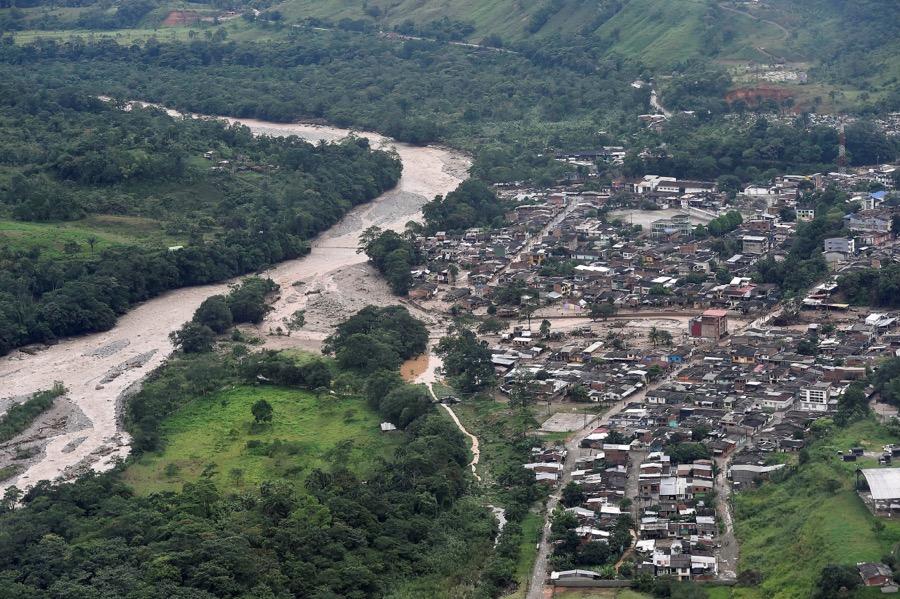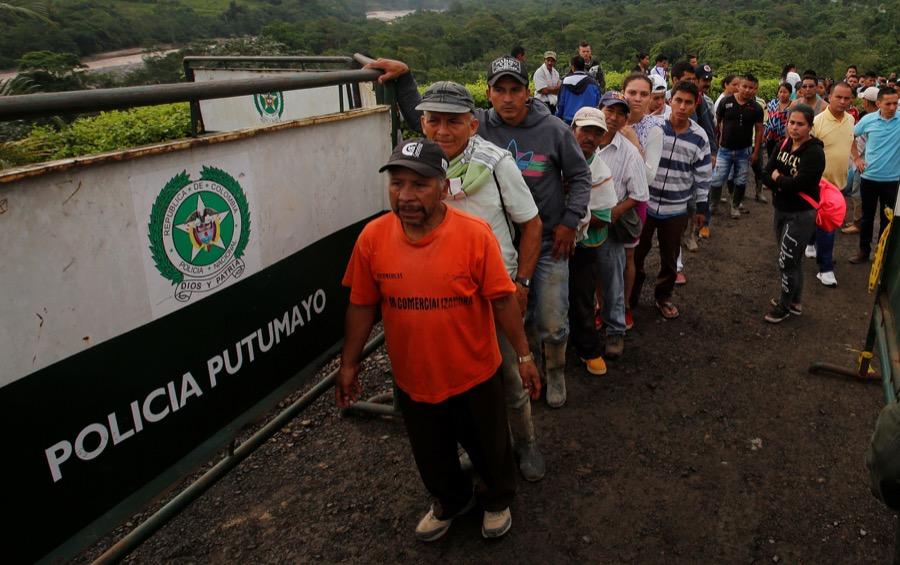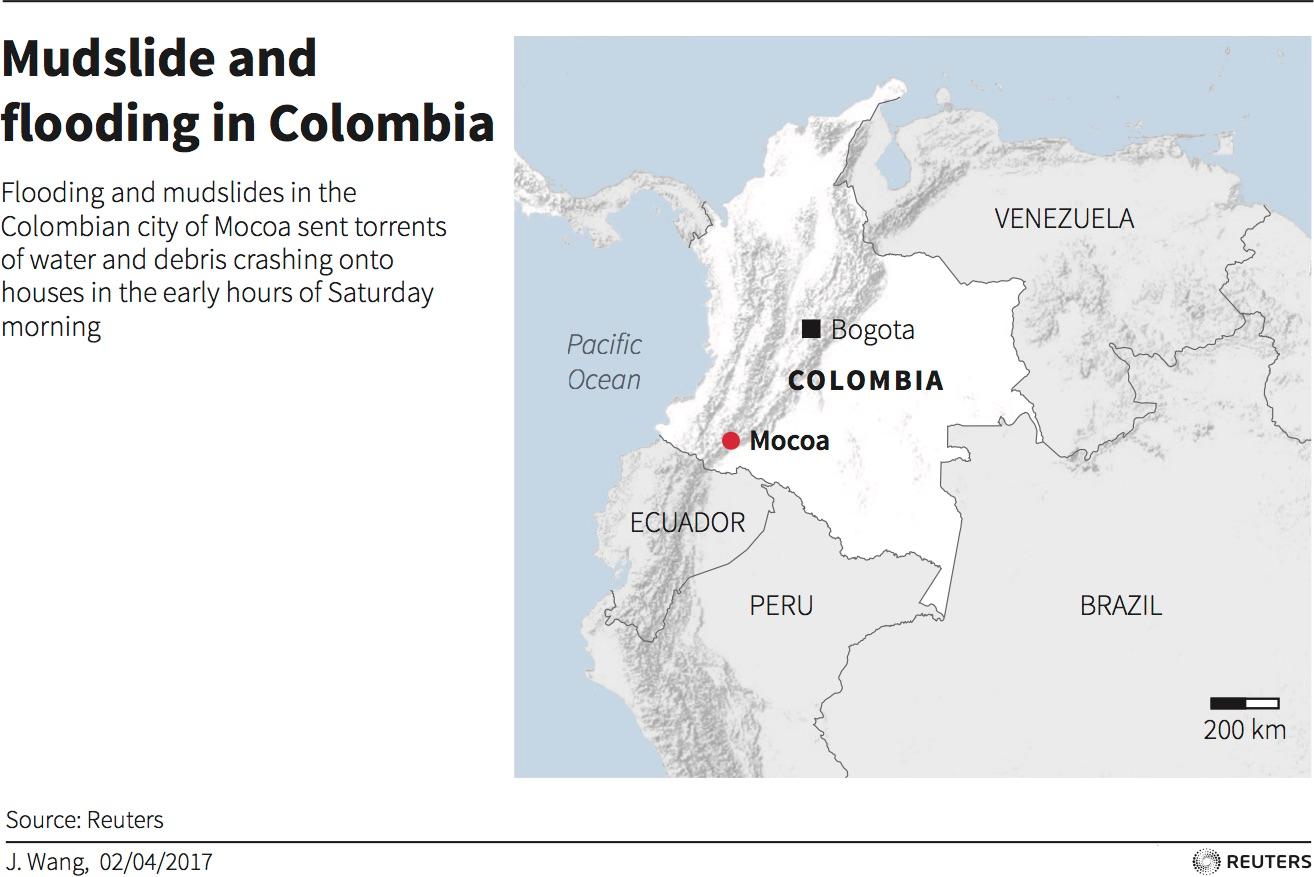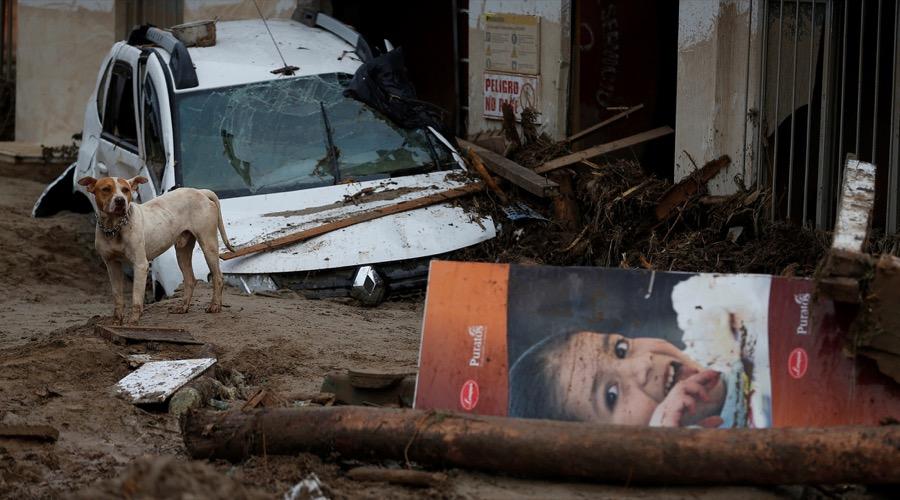Colombia mudslides kill at least 200 after rivers burst their banks
A dog on a street destroyed after flooding and mudslides caused by heavy rains leading several rivers to overflow, pushing sediment and rocks into buildings and roads in Mocoa, Colombia on April 2.
The death toll from a devastating landslide in the Colombian town of Mocoa stood at around 200 on Sunday as rescuers clawed through piles of muck and debris in search of survivors.
The Colombian Red Cross, which provided the revised consolidated toll, said it was unclear how many people were still missing.
An earlier Red Cross tally said 234 had been killed and more than 100 were unaccounted for. A spokesman for the organization said the miscount was due to confusion about the identities of the victims.
At the Vatican, Pope Francis said he was "profoundly saddened" by the disaster, which struck the town of 40,000 with little warning late Friday after days of torrential rains that caused flooding of three area rivers.
"I pray for the victims and want to assure those who weep for the missing of my closeness to them," the pope said in a statement.
At least 203 people were injured, some 300 families were affected and 25 homes destroyed, the Red Cross said.

The Pacific rim of South America has been hard hit in recent months by floods and mudslides, with scores killed in Peru and Ecuador as well.
In Mocoa, the capital of the department of Putumayo in Colombia's Amazon basin, the avalanche of mud and water swept away homes, bridges, vehicles and trees, leaving piles of wrecked timber buried in thick mud.
President Juan Manuel Santos was scheduled to return to Mocoa on Sunday along with cabinet ministers to supervise rescue efforts in the heavily forested region.
The president met with rescuers and survivors in Mocoa on Saturday, and declared a public health and safety emergency to speed up rescue and aid operations.
Nation in mourning
"Dear God, I don't want to even remember that," said street vendor Marta Ceballos, who survived the mudslide.
"To see how some people screamed, and others cried, ran, tried to flee in cars, on motorcycles, and how they were trapped in the mud. It's all too, too difficult," she told AFP.
Ceballos said that she lost all of her material possessions. "The only things I fortunately did not lose were my husband, my daughters and my nephews," she said.
Putumayo Governor Sorrel Aroca called the event "an unprecedented tragedy" for the area.
There are "hundreds of families we have not yet found and whole neighborhoods have disappeared," he told W Radio.

Carlos Ivan Marquez, director of the National Disaster Risk Management Unit, told AFP the mudslides were caused by the rise of the Mocoa River and tributaries.
Some 130 millimeters (5 inches) of rain fell Friday night, Santos said. "That means 30 percent of monthly rainfall fell last night, which precipitated a sudden rise of several rivers," he said.
"Our prayers are with the victims and those affected," he added.
Rescue efforts
One thousand emergency personnel, including soldiers and local police, were deployed to help the rescue effort. Mocoa was left without power or running water, and there were reports of people looting stores searching for bottled water.
"There are lots of people in the streets, lots of people displaced and many houses have collapsed," retired Mocoa resident Hernando Rodriguez, 69, said by telephone.
"People do not know what to do … there were no preparations" for such a disaster, he said.
Several deadly landslides have struck Colombia in recent months.
A landslide in November killed nine people in the rural southwestern town of El Tambo, officials said at the time.
A landslide the month before killed 10 people in the north of the country.
Climate change can play a big role in the scale of natural disasters, such as this one, a senior UN official said.
"Climate change is generating dynamics and we see the tremendous results in terms of intensity, frequency and magnitude of these natural effects, as we have just seen in Mocoa," said Martin Santiago, UN chief for Colombia.
By AFP's Luis Robayo in Mocoa, Colombia and Alina Dieste in Bogota.

